牛津深圳版七年级英语上册Units3-4课件 (共23张PPT)
文档属性
| 名称 | 牛津深圳版七年级英语上册Units3-4课件 (共23张PPT) | 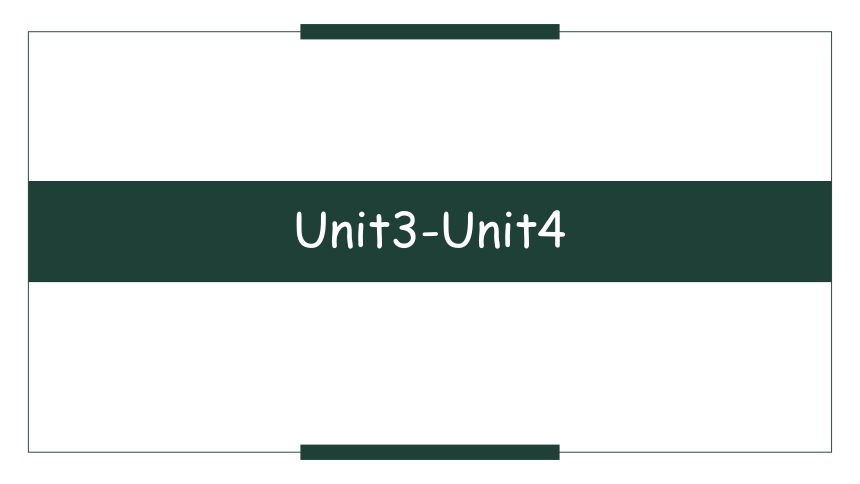 | |
| 格式 | zip | ||
| 文件大小 | 1.2MB | ||
| 资源类型 | 教案 | ||
| 版本资源 | 牛津深圳版 | ||
| 科目 | 英语 | ||
| 更新时间 | 2021-12-12 08:48:50 | ||
图片预览

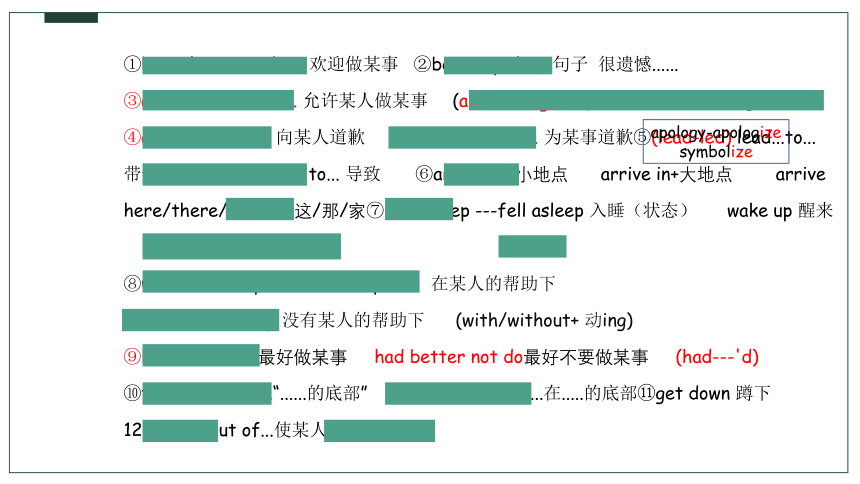

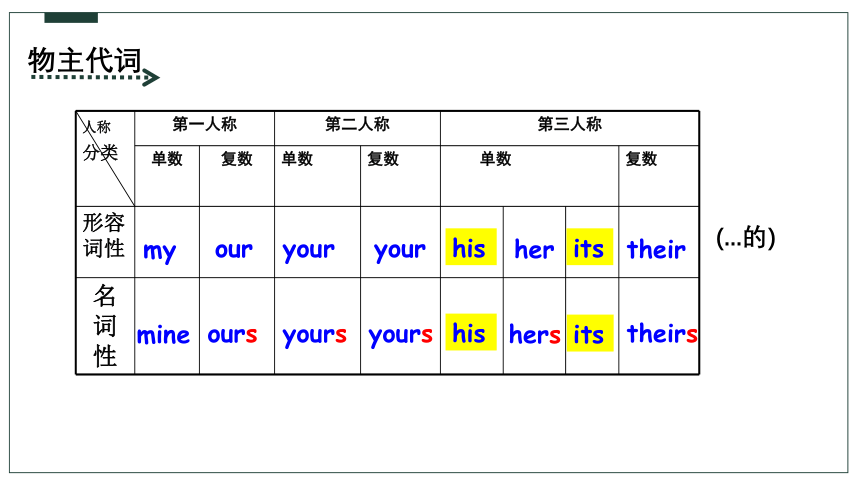
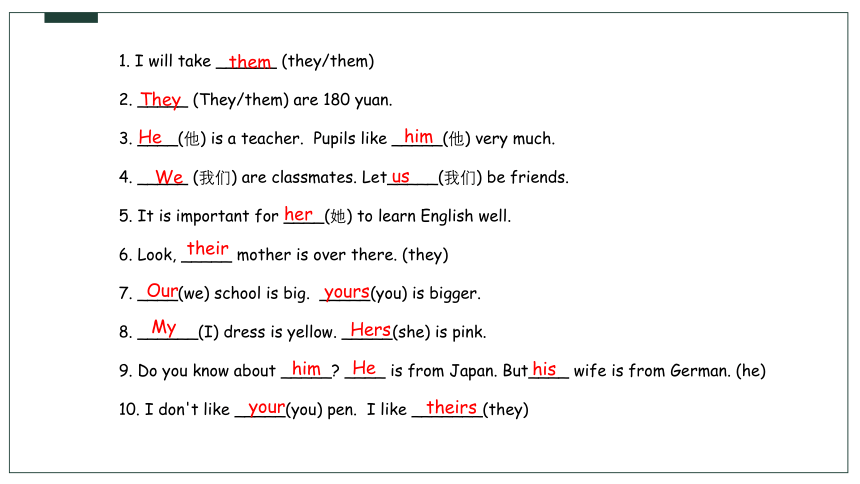
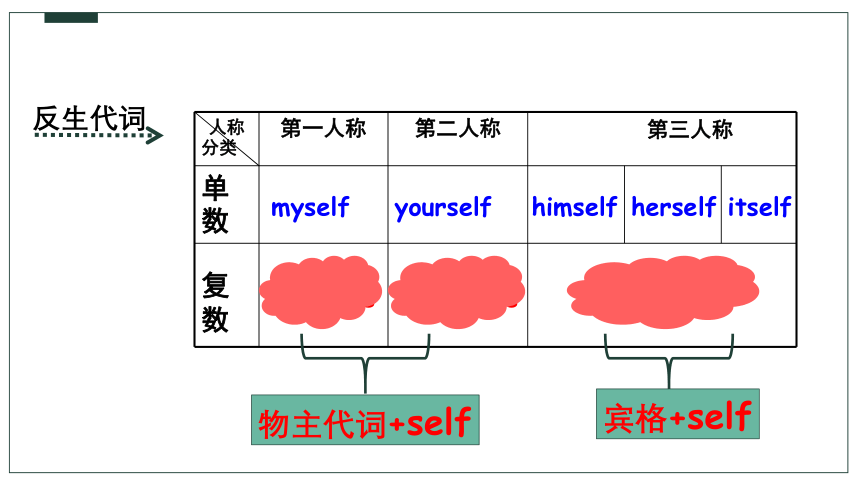

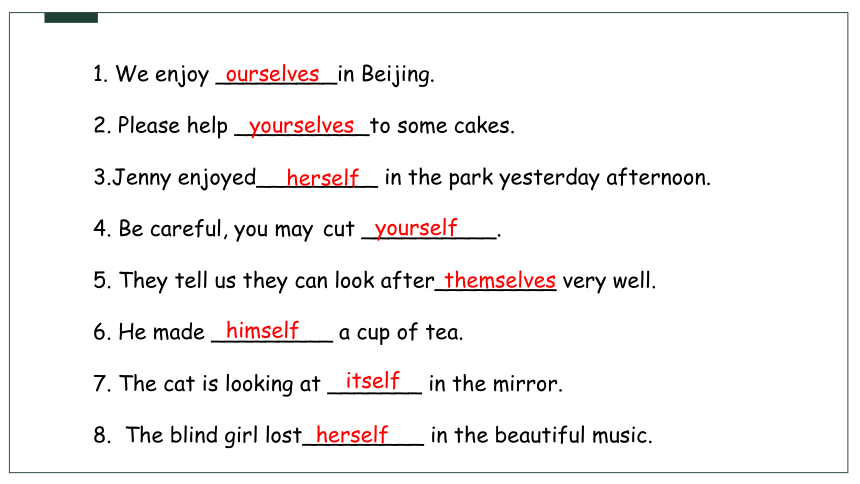
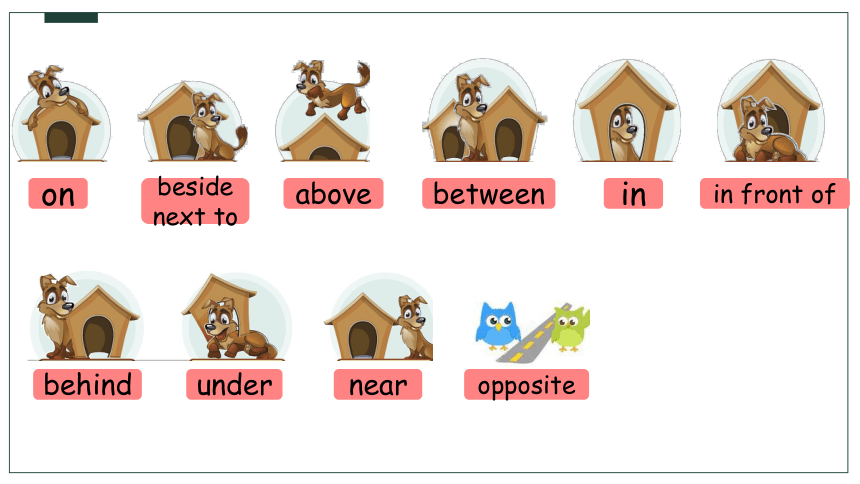
文档简介
(共23张PPT)
Unit3-Unit4
①be welcome to do... 欢迎做某事 ②be sorry that+句子 很遗憾......
③allow sb. to do sth. 允许某人做某事 (allow doing sth.) (We don't allow eating here.)
④apologize to sb. 向某人道歉 apologize for sth. 为某事道歉⑤(lead-led) lead...to... 带领...去... lead to... 导致 ⑥arrive at+小地点 arrive in+大地点 arrive here/there/home 到这/那/家⑦fall asleep ---fell asleep 入睡(状态) wake up 醒来
⑧with one’s help=with the help of... 在某人的帮助下
without one's help 没有某人的帮助下 (with/without+ 动ing)
⑨had better do最好做某事 had better not do最好不要做某事 (had---'d)
⑩the bottom of...“......的底部” at the bottom of...在.....的底部 get down 蹲下 12.get sb. out of...使某人脱离
apology-apologize
symbolize
第一人称
第二人称
第三人称
人称
格
数
单数
复数
主格
宾格
主格
宾格
I
you
he
she
it
me
you
him
her
it
we
you
they
us
you
them
人称代词
(前主后宾)
人称 分类 第一人称 第二人称 第三人称
单数 复数 单数 复数 单数 复数
形容词性
名词性
my
our
your
your
his
her
its
their
mine
ours
yours
yours
his
hers
its
theirs
物主代词
(...的)
1. I will take ______ (they/them)
2. _____ (They/them) are 180 yuan.
3. ____(他) is a teacher. Pupils like _____(他) very much.
4. _____ (我们) are classmates. Let_____(我们) be friends.
5. It is important for ____(她) to learn English well.
6. Look, _____ mother is over there. (they)
7. ____(we) school is big. _____(you) is bigger.
8. ______(I) dress is yellow. _____(she) is pink.
9. Do you know about _____ ____ is from Japan. But____ wife is from German. (he)
10. I don't like _____(you) pen. I like _______(they)
them
They
He
him
We
us
her
their
Our
yours
My
Hers
him
He
his
your
theirs
人称 分类 第一人称 第二人称 第三人称
单 数
复数
myself
ourselves
yourself
yourselves
himself
themselves
herself
itself
反生代词
物主代词+self
宾格+self
(反生介词常见固定搭配)
①过得愉快 ②自学
③请随便吃 ④自言自语
⑤独自 ⑥不要客气
⑦陶醉/沉浸于 ⑧自己穿衣服
⑨照顾自己 ⑩切到自己
enjoy oneself
teach/learn oneself
help oneself to sth.
say to/talk to oneself
by oneself
make oneself at home
lose oneself in...
dress oneself
look after oneself
cut oneself
1. We enjoy _________in Beijing.
2. Please help __________to some cakes.
3.Jenny enjoyed_________ in the park yesterday afternoon.
4. Be careful, you may cut __________.
5. They tell us they can look after_________ very well.
6. He made _________ a cup of tea.
7. The cat is looking at _______ in the mirror.
8. The blind girl lost_________ in the beautiful music.
ourselves
yourselves
herself
yourself
themselves
himself
itself
herself
on
beside
next to
above
between
in
in front of
behind
under
near
opposite
在上面:on, above, over
on
above
over
(指两个物体表面接触,一个在另一的上面)
(表示位置高于某物,但不一定在正上方,其反义词是below)
(表示位置高于某物,在某物的正上方)
There is a bridge over the river. 河上有一座桥。
We flew above the clouds. 我们飞越云层。
They put some flowers on the teacher's desk.
in front of
表示“在------(范围外的)前面”
in the front of
表示“在------(范围内的)前面”
The chair is in front of the TV set.
The chair is in the front of the classroom.
through, across, along
1) across横过,越过......(表面)马路,河流等
Don't walk across the busy road.
2)through穿过......(内部)窗户,隧道,桥下,森林,大厅人群等
I walk through the hall.
3) along沿着
Walk along the street and turn left.
现在进行时:be+V-ing
肯定句:
The children are playing in the park.
否定句(be+not):
The children aren't playing in the park.
am-am not
is-is not(isn't)
are-are not(aren't)
一般疑问句(be提前):
Are the children playing in the park
Yes, they are.
回答:
No, they aren't.
特殊疑问句:
What are you doing
Why is he sleeping here
现在进行时提示词
look, listen, now
at the moment
at the present
these days
right now
right away
① 直接+ing
play- say- eat-
playing
saying
eating
②以不发音的e结尾,去e,+ing
ride- wirte-
riding
writing
tie- die- lie-
tying
dying
lying
④辅元辅,双写,+ing
run- swim-
running
swimming
注意:see- seeing
现在进行时动词的变法:
③ie变成y, 再+ing
1. What is our granddaughter doing She _________ (listen ) to music.
2. The girls ___________ (do) in the classroom at this moment.
3. My mother _____________ (not cook) for us on Sunday.
4. What _____ you ______ ( do ) now
5. ______ they ________( have) an English lesson now
6.They _______________(not water) the flowers now.
7.Look! the girls ____________(lie) on the bench .
8._____ the boy _____ (go) to school by _______?
9. It’s 5 o’clock now. We ___________(have)supper. 10.______Helen____________(wash)clothes Yes, she is.
Does
are doing
doesn't cook
are doing
Are having
aren't watering
are lying
is listening
are having
Is washing
go
himself
discuss the importance of trees. 讨论树的重要性
fight against 与...作斗争 fight with...与...打架 fight for... 为...打架
take in 吸收 take off 脱下 take out 取出 take care of照顾
come from = be from 来自
for example 例如(用逗号隔开) such as 例如(不用逗号,可与and so on连用)
in fact (补充细节)确切地说 actually
look around 环顾四周
millions of 大量的(上百万的) hundreds of 成百上千的
thousands of 成千上万的 billions of 数十亿的 【有数字没s没of,没数字有s有of】
be made of 由...制成(看得出原材料) be made from 由...制成(看不出原材料)
be good for 对...有用 be bad for = be harmful to...对...有害 harmless无害的
stop doing 停止正在做的事情 stop to do 停下来去做某事
difference-different
confidence-confident
go on doing/go on to do
1. My sister ________ _______ her neighbors last week. 我妹妹上周跟她邻居吵架了
2.Smoking ____ __________ ____ our health. 吸烟对我们的健康有害
3.Where _____ you _______ = Where _____ you _______ _______ 你来自哪里?
4._____ ______(事实上) I went to see a movie yesterday.
5.The desk ______ ______ _______ wood. 这桌子是由木头制成的。
6.I have ________ ________ yuan. (我有三百万)
7.He ______________ TV and began to read English. 他停止看电视,开始读英语
8.I like sport, _____ ______, football. 我喜欢运动,例如足球
fought with
is harmful to
are from
do come from
In fact
is made of
three million
stopped watching
for example
other the other another
other
another
the other
(另一些/其他的+复数名词)
(“另一个” 两者的另一个)
(另一, 又一 + 单数名词)
I don’t like this pen. Can you give me another pen
Some children like apples, other children like bananas.
I only have two pens. One is red, the other is yellow.
用other, the other, another 填空
1. Some girls are singing and _________ girls are talking.
2. This is one of your socks. Where is _________ one
3. This book is too difficult for me. Please give me ________ one.
4. I don’t like this skirt. Show me _________.
5. I have two cats; one is black and ____________ is white.
6. Do you have any _________ questions
other
the other
another
another
the other
other
分类 人称,数 人称代词 物主代词 反生代词
主格 宾格 形容词性 名词性
第一人称 单数 I me my mine myself
复数 we us our ours ourselves
第二人称 单数 you you your yours yourself
复数 you you your yours yourselves
第三人称 单数 he him his his himself
she her her hers herself
it it its its itself
复数 they them their theirs themselves
THANKS FOR YOUR LISTENING
Unit3-Unit4
①be welcome to do... 欢迎做某事 ②be sorry that+句子 很遗憾......
③allow sb. to do sth. 允许某人做某事 (allow doing sth.) (We don't allow eating here.)
④apologize to sb. 向某人道歉 apologize for sth. 为某事道歉⑤(lead-led) lead...to... 带领...去... lead to... 导致 ⑥arrive at+小地点 arrive in+大地点 arrive here/there/home 到这/那/家⑦fall asleep ---fell asleep 入睡(状态) wake up 醒来
⑧with one’s help=with the help of... 在某人的帮助下
without one's help 没有某人的帮助下 (with/without+ 动ing)
⑨had better do最好做某事 had better not do最好不要做某事 (had---'d)
⑩the bottom of...“......的底部” at the bottom of...在.....的底部 get down 蹲下 12.get sb. out of...使某人脱离
apology-apologize
symbolize
第一人称
第二人称
第三人称
人称
格
数
单数
复数
主格
宾格
主格
宾格
I
you
he
she
it
me
you
him
her
it
we
you
they
us
you
them
人称代词
(前主后宾)
人称 分类 第一人称 第二人称 第三人称
单数 复数 单数 复数 单数 复数
形容词性
名词性
my
our
your
your
his
her
its
their
mine
ours
yours
yours
his
hers
its
theirs
物主代词
(...的)
1. I will take ______ (they/them)
2. _____ (They/them) are 180 yuan.
3. ____(他) is a teacher. Pupils like _____(他) very much.
4. _____ (我们) are classmates. Let_____(我们) be friends.
5. It is important for ____(她) to learn English well.
6. Look, _____ mother is over there. (they)
7. ____(we) school is big. _____(you) is bigger.
8. ______(I) dress is yellow. _____(she) is pink.
9. Do you know about _____ ____ is from Japan. But____ wife is from German. (he)
10. I don't like _____(you) pen. I like _______(they)
them
They
He
him
We
us
her
their
Our
yours
My
Hers
him
He
his
your
theirs
人称 分类 第一人称 第二人称 第三人称
单 数
复数
myself
ourselves
yourself
yourselves
himself
themselves
herself
itself
反生代词
物主代词+self
宾格+self
(反生介词常见固定搭配)
①过得愉快 ②自学
③请随便吃 ④自言自语
⑤独自 ⑥不要客气
⑦陶醉/沉浸于 ⑧自己穿衣服
⑨照顾自己 ⑩切到自己
enjoy oneself
teach/learn oneself
help oneself to sth.
say to/talk to oneself
by oneself
make oneself at home
lose oneself in...
dress oneself
look after oneself
cut oneself
1. We enjoy _________in Beijing.
2. Please help __________to some cakes.
3.Jenny enjoyed_________ in the park yesterday afternoon.
4. Be careful, you may cut __________.
5. They tell us they can look after_________ very well.
6. He made _________ a cup of tea.
7. The cat is looking at _______ in the mirror.
8. The blind girl lost_________ in the beautiful music.
ourselves
yourselves
herself
yourself
themselves
himself
itself
herself
on
beside
next to
above
between
in
in front of
behind
under
near
opposite
在上面:on, above, over
on
above
over
(指两个物体表面接触,一个在另一的上面)
(表示位置高于某物,但不一定在正上方,其反义词是below)
(表示位置高于某物,在某物的正上方)
There is a bridge over the river. 河上有一座桥。
We flew above the clouds. 我们飞越云层。
They put some flowers on the teacher's desk.
in front of
表示“在------(范围外的)前面”
in the front of
表示“在------(范围内的)前面”
The chair is in front of the TV set.
The chair is in the front of the classroom.
through, across, along
1) across横过,越过......(表面)马路,河流等
Don't walk across the busy road.
2)through穿过......(内部)窗户,隧道,桥下,森林,大厅人群等
I walk through the hall.
3) along沿着
Walk along the street and turn left.
现在进行时:be+V-ing
肯定句:
The children are playing in the park.
否定句(be+not):
The children aren't playing in the park.
am-am not
is-is not(isn't)
are-are not(aren't)
一般疑问句(be提前):
Are the children playing in the park
Yes, they are.
回答:
No, they aren't.
特殊疑问句:
What are you doing
Why is he sleeping here
现在进行时提示词
look, listen, now
at the moment
at the present
these days
right now
right away
① 直接+ing
play- say- eat-
playing
saying
eating
②以不发音的e结尾,去e,+ing
ride- wirte-
riding
writing
tie- die- lie-
tying
dying
lying
④辅元辅,双写,+ing
run- swim-
running
swimming
注意:see- seeing
现在进行时动词的变法:
③ie变成y, 再+ing
1. What is our granddaughter doing She _________ (listen ) to music.
2. The girls ___________ (do) in the classroom at this moment.
3. My mother _____________ (not cook) for us on Sunday.
4. What _____ you ______ ( do ) now
5. ______ they ________( have) an English lesson now
6.They _______________(not water) the flowers now.
7.Look! the girls ____________(lie) on the bench .
8._____ the boy _____ (go) to school by _______?
9. It’s 5 o’clock now. We ___________(have)supper. 10.______Helen____________(wash)clothes Yes, she is.
Does
are doing
doesn't cook
are doing
Are having
aren't watering
are lying
is listening
are having
Is washing
go
himself
discuss the importance of trees. 讨论树的重要性
fight against 与...作斗争 fight with...与...打架 fight for... 为...打架
take in 吸收 take off 脱下 take out 取出 take care of照顾
come from = be from 来自
for example 例如(用逗号隔开) such as 例如(不用逗号,可与and so on连用)
in fact (补充细节)确切地说 actually
look around 环顾四周
millions of 大量的(上百万的) hundreds of 成百上千的
thousands of 成千上万的 billions of 数十亿的 【有数字没s没of,没数字有s有of】
be made of 由...制成(看得出原材料) be made from 由...制成(看不出原材料)
be good for 对...有用 be bad for = be harmful to...对...有害 harmless无害的
stop doing 停止正在做的事情 stop to do 停下来去做某事
difference-different
confidence-confident
go on doing/go on to do
1. My sister ________ _______ her neighbors last week. 我妹妹上周跟她邻居吵架了
2.Smoking ____ __________ ____ our health. 吸烟对我们的健康有害
3.Where _____ you _______ = Where _____ you _______ _______ 你来自哪里?
4._____ ______(事实上) I went to see a movie yesterday.
5.The desk ______ ______ _______ wood. 这桌子是由木头制成的。
6.I have ________ ________ yuan. (我有三百万)
7.He ______________ TV and began to read English. 他停止看电视,开始读英语
8.I like sport, _____ ______, football. 我喜欢运动,例如足球
fought with
is harmful to
are from
do come from
In fact
is made of
three million
stopped watching
for example
other the other another
other
another
the other
(另一些/其他的+复数名词)
(“另一个” 两者的另一个)
(另一, 又一 + 单数名词)
I don’t like this pen. Can you give me another pen
Some children like apples, other children like bananas.
I only have two pens. One is red, the other is yellow.
用other, the other, another 填空
1. Some girls are singing and _________ girls are talking.
2. This is one of your socks. Where is _________ one
3. This book is too difficult for me. Please give me ________ one.
4. I don’t like this skirt. Show me _________.
5. I have two cats; one is black and ____________ is white.
6. Do you have any _________ questions
other
the other
another
another
the other
other
分类 人称,数 人称代词 物主代词 反生代词
主格 宾格 形容词性 名词性
第一人称 单数 I me my mine myself
复数 we us our ours ourselves
第二人称 单数 you you your yours yourself
复数 you you your yours yourselves
第三人称 单数 he him his his himself
she her her hers herself
it it its its itself
复数 they them their theirs themselves
THANKS FOR YOUR LISTENING
